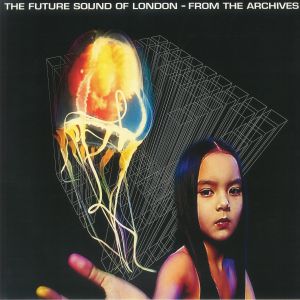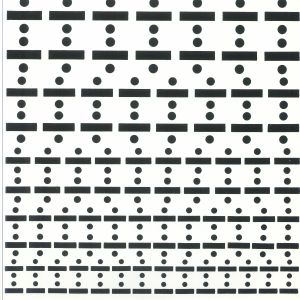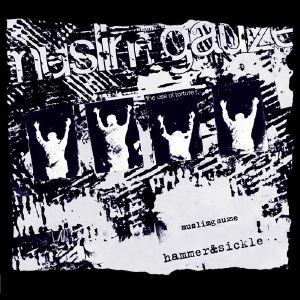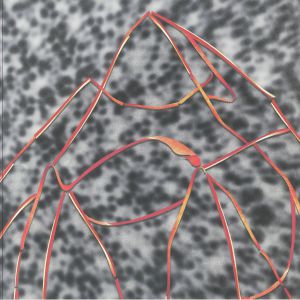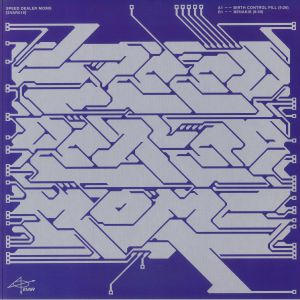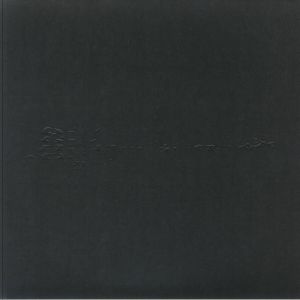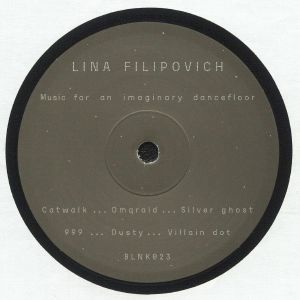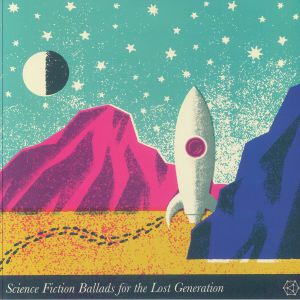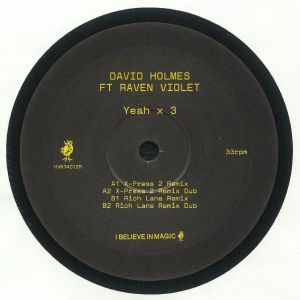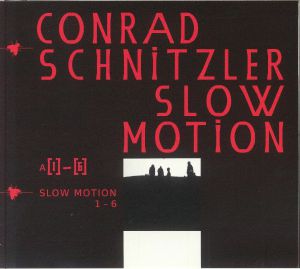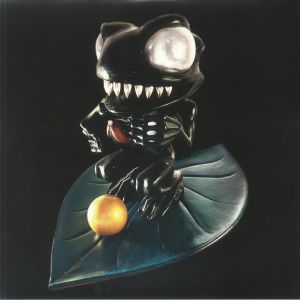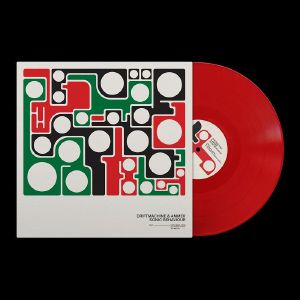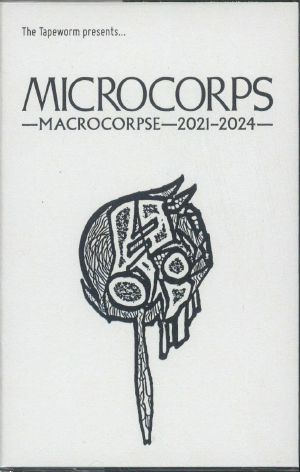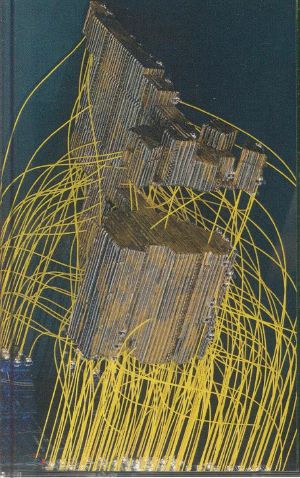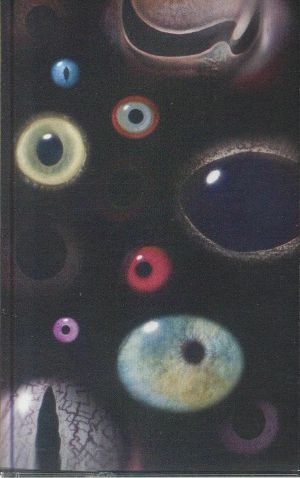
Juno Recommends Experimental
Juno Recommends Experimental: May 2024
Read more...
1
Cat: LPFSOLRSD 1. Rel: 06 May 24
Experimental/Electronic
Review: Originally released in 2007, this From The Archives album from The Future Sound of London has now reemerged from the archives just in time for a special new release for this year's Record Store Day. It has been coveted by fans and collectors alike after over a decade out of print and for good reason - it showcases the electronic pioneer's finest tracks. Limited to just 1200 individually numbered copies, this reissue offers a rare opportunity to experience the timeless soundscapes of FSOL in all their original glory.
out of stock $36.84
2
Cat: WRWTFWW 083. Rel: 06 May 24
Experimental/Electronic
Review: Originally released in 1998, Mixmaster Morris & Jonah Sharp's Quiet Logic surprisingly flew under the radar when it came out.- perhaps because of the huge amount of electronic music being released at the time. The pair have some of the most important albums and tracks in their respected genres and are arguably two of the most important figures in the electronic music chill out scene from the 90s, and when you add the input of Haruomi Hosono from Yellow Magic Orchestra on two tracks, it becomes an even more essential listen. Chill out heads unite!
...Read more
in stock $36.29
3
Review: R.N.A. Organism's 1980 release, R.N.A.O Meets P.O.P.O, reissued and remastered by Stephan Mathieu, is a captivating delve into Kansai's experimental scene. Comprised of enigmatic figures 0123, Zero, and Chance (aka Tatsuo Kohki), the album presents a sonic collage blending metallic beatbox loops, robotic vocals, and glockenspiel motifs. Producer Kaoru Sato (of EP-4 fame) helped sculpt their dub-infused, distorted rhythms and bizarre effects. While initially deemed too avant-garde, the album offers a more direct insight into their visionary sound. The opener, 'Weimar 22,' sets the tone with blown-out drum machines and ethereal vocals, hinting at influences ranging from electro-pop to spannered dub and tape manipulations. Tracks like 'After' and 'Nativity' showcase their experimental abilities, layering environmental sounds and off-kilter melodies over chuggy beats. R.N.A.O Meets P.O.P.O is a fusion of low-budget experimentation and tempered instrumentalism, offering a glimpse into the enigmatic world of Kansai's late 70s scene. Its timeless appeal resonates with listeners, echoing throughout the decades with its prophetic Japanese twist.
...Read more
in stock $33.47
4
Cat: MGARCHIVE VOL64. Rel: 20 May 24
Experimental/Electronic
Review: Early on in Muslimgauze's (Bryn Jones') career, the musician released two ultra-mysterious releases on the equally mysterious label Hessian, which some speculate might've been comprised entirely of Jones himself. Hammer & Sickle was one of these two early LPs from the faux Arabic auteur, and was notable for its distinct lack of any back cover artwork (who needs a visual stimulus when you've got such great music on board?). Though still indicative of Jones' work as Muslimgauze, superfans will note that this release sounds a little more formative than some of his later releases, owing to its lessened use of Middle Eastern instrumentation and sparser production in general. B-sider 'Fear Of Gadaffi' is the most intermittent in this regard, revelling more than anything in the simple effect of spring delay on sampled, freeform perc hits.
...Read more
in stock $20.53
5
Cat: S 51. Rel: 27 May 24
Experimental/Electronic
Review: Techno talents don't come much more proven than Speedy J and Surgeon. Both are veterans of the game but artists who have remained at the sharp end and their Multiples collaborative project is in part responsible for that. Now it births a full-length album of tweaked experiments that take techno into new realms. The whole thing was recorded in just two days at J's STOOR lab in Rotterdam on an array of hardware machines. Each tune is a raw, one-take affair which means they are perfectly imperfect and feel utterly alive. Techno and elector collide with beatless moments, pummelling low ends and plenty of club heft.
...Read more
in stock $36.56
6
Review: Birth Control Pill, the latest offering from Speed Dealer Moms, shows the duo's talents of making chaotic yet elegant live electronics. On the title track, they blend ruffneck drum and bass with ripping breakcore, culminating in a thrilling extratone breakdown. 'Benakis,' on the B-side, explores unconventional time signatures and intricate melodies, transitioning between breakcore and hard techno before drifting into a dreamy, beatless outro. Speed Dealer Moms, comprising John Frusciante (Red Hot Chili Peppers) and Aaron Funk (Venetian Snares), navigate their own crooked road with a telepathic musical connection, resulting in their most functional and concise release yet. These fearless electronic compositions push boundaries and defy categorization, reflecting their relentless pursuit of the new.
...Read more
in stock $29.81
7
Review: Glasgow's Lanark Artefax hasn't dropped a new record in around four years but now breaks that hiatus with a fresh EP on AD 93. These five cuts are all precision moulded for maximum impact, and they all very much sound like they have come back from the future. 'Surface Light' rides on lurching beats and pristine lasers cut them up as reflective metal surfaces twist and turn. 'Metallur' is double time, mind-melting and overdriven synth madness with a jittery rhythm propping up the melodic madness. 'Meszthread' is serrated electro with edges so sharp they might cut you and 'Tris' then take a moment to wallow in some dramatic synthscapes. 'At The Bay' soundtracks the end of the world with a real sense of doom and finality.
...Read more
in stock $22.49
8
Cat: BLNK 023. Rel: 27 May 24
Experimental/Electronic
Review: Lina Filipovich's Music for an imaginary dancefloor is an exploration of the boundary between club music and the abstract, guided by analogue synthesizers and a vivid imagination. Composed from improvisations between June and December 2022, the LP delves into ethereal realms with nervous energy and atmospheric textures that evoke imagery of surreal landscapes and otherworldly experiences. Unlike her previous works which focused on deconstructing existing sounds, Filipovich collaborates with the machines themselves in this album, allowing their aesthetics to intertwine with her creative vision. The result is a collection of tracks that pulse with intensity, drawing listeners into a dreamlike state where reality blurs with fantasy. The album's sonic landscape is rich with atonal drones and intricate delays, creating a sense of unease and wonderment. It's as if the music is speaking a language of spirits, beckoning listeners to explore the allure of the dark and the unknown. Miles Whittaker of Demdike Stare lends his mastering and additional mixing expertise to enhance the album's sonic depth, further immersing listeners in its hypnotic embrace. Overall, Music for an imaginary dancefloor is a stunning trip that defies traditional categorisation. It invites listeners to step into a realm where the boundaries of reality dissolve, leaving only the pulsating rhythms and haunting melodies to guide them through the darkness. Lina Filipovich's vision is realised with remarkable clarity and depth, making this album a standout release in the realm of experimental electronic music.
...Read more
in stock $26.99
9
Cat: CIS 151. Rel: 20 May 24
Experimental/Electronic
Review: Kevin Pearce's Science Fiction Ballads For The Lost Generation emerges as a riveting exploration of sonic storytelling and atmospheric nostalgia. Inspired by Vangelis' evocative 'Blade Runner' soundtrack, Pearce conceived the album as a cinematic journey, crafting a collection of songs that embody a sense of mystery and introspection. Initially recorded as a personal experiment, the album remained hidden for years until Pearce rediscovered it by chance. With its unearthed quality, Science Fiction Ballads exudes a timeless allure, reminiscent of audio fossils waiting to be discovered. Fans of soundtracks everywhere should really be interested in this release.
...Read more
in stock $37.53
10
Review: Six barnstormin' mutant cuts from West London's enigmatic Tutu Ta, traversing half time Muslimgauz-y techno abstraction, Gastian 4x4 steppers, syrupy synth funk, and cavernous UK roots destruction. 'The Shrine' sees Tutu further refine their bassbin-bothering sonic footprint, with a concise platter of smogged, hypnotic klang. Standouts include the heavy-browed opener, on which Tutu Ta's hollers semi-intelligible phrases over a beat that sounds like Adrian Sherwood produced a Three Six Mafia record, the silken plod of 'You Funky Devil', and the menacing metallic clank n' roll of the evocative 'Smoke Coming From The Steel Mill'. Definitely one to watch!
...Read more
out of stock $15.19
11
Review: Album number six from Sheffield's electronic heroes The Black Dog was closer to their debut, Bytes, than anything that came in between. "We never set out to make it like Bytes," group member Martin Dust has since explained. "My idea was to create something you could come home to after you'd just ben to a club or gig, that would start at the right pace and then just wind down into a great album and just chill out." Suffice to say, they achieved that and then some. Silenced is an example of downtempo that still feels like it has one foot in the rave, sounds informed by 4AM highs and 10AM quiet, here made precious through the use of blissful and complex tones that envelop and encase your mind. A record everyone should own.
...Read more
in stock $36.56
12
Cat: PRO1 415. Rel: 20 May 24
Experimental/Electronic
in stock $33.18
13
out of stock $15.47
14
Cat: SFW 40261LP. Rel: 06 May 24
Experimental/Electronic
Review: American experimental duo Matmos brings us their latest project Return To Archive. Matmos has been exploring various genres since they first came out some 30 years ago now and this album explores using sound in different and unique ways to create, almost like taking your favorite colours, throwing and seeing what sticks. There are echoes of DJ Shadow's Endtroducing, at least in its sample-based nature, if in a more experimental rather than urban flavours. Either way, the album it's brilliant in its own way.
in stock $23.91
15
Cat: WHR 007CD. Rel: 13 May 24
Experimental/Electronic
in stock $9.56
16
out of stock $17.73
17
Review: Ukranian artist Vakula first linked up with Russia's Arma label in 2017 for the Techno Game LP, which was yet another step on for an artist bridging the gap between exploratory techno and progressive instrumentation and musicianship. Following 2020's In Search Of Ancient Civilization Vakula is back on the label with a new LP which continues his spiritual quest into less explored parts of the techno sphere. At this point many passages of 108 Mysteries edges closer to ambient or traditional music rather than techno, but a motorik pulse continues to guide everything whether explicit or implied.
...Read more
out of stock $21.94
18
Cat: NNT 053LP. Rel: 13 May 24
Experimental/Electronic
Review: Kampala's Nyege Nyege is no longer a niche name in electronic music, having risen to become Africa's most prominent stable for experimental synthesised tracks, carving out not necessarily a sound - artists and albums vary pretty wildly - but a kind of aesthetic which, once recognised, can usually be identified in most output. Of course, there's a problem there, with so much light now being shone on Uganda and the label itself, meaning so much else is missed from nearby countries, let alone this vast continent. Nevertheless, all that attention is not without good reason, and this collaboration between Durban, South Africa-based gqom futurists Phelimuncasi and abstract sound system crew Metal Preyers is a case in point. At once rooted in authentic African dance genres, and yet staunchly determined to reconfigure them, it's pretty much unlike anything you'll hear this week/month/year.
...Read more
in stock $20.95
19
VARIOUS
Cat: RAUM 003LP. Rel: 20 May 24
Experimental/Electronic
Review: "Free from genre constraints" is a phrase we hear all-too-often, without actually hearing what that should mean in practice. Then along comes Kuboraum Sound Residency and shows the rest how it should be done. Name-checking the eponymous collective-community of artists, creatives, and big musical thinkers, a network of individuals responsible for innumerable events, collaborations, and artist residencies, a quick look through who's involved on this 12 track gem tells you everything. Next generation titans like Manchester-Berlin duo Space Afrika - often credited with creating their own ambient-dub-grime-industrial aesthetic - next to u-Ziq, alter ego of Mike Paradinas, the name behind legendary and stylistically wild UK imprint Planet Mu. Riotous Ugandan-Kenyan MC Yallah. Techno and noise pioneer Regis. Mannequin Records boss Alessandro Adriani. Every track is incredible. We cannot recommend enough.
...Read more
in stock $30.09
20
in stock $19.41
21
Review: There's more to song titles like 'Song to Noise' and 'A Siren Is A Simple Device' than meets the eye here. The former is a lyrical declaration for the power and beauty of noise, cacophonies as art, walls of sound as things of real intellectual might. The latter paying homage to how much emotion can be felt in the most mundane refrains and vibrations in the air. Setting a precedent for the album as a whole, analogue sound researchers Driftmachine - AKA Andreas Gerth and Florian Zimmer - team up with word and sound artist Andreas Ammer, known for his work with Acid Pauli, to create something that plays with and changes our perceptions of what noise is, what it can be, and what it might be used for. An academic exercise, the results are surprisingly inviting and accessible.
...Read more
in stock $28.97
22
out of stock $18.00
23
Review: Divided Time '79 by Jonathan Sharp takes listeners on a sonic journey from London to New York in 1979. Building on the earlier volume, which captured the essence of the early 70s, this album delves into the experiences of a 12-year-old navigating the cultural contrasts between the two cities. With vivid descriptions of iconic landmarks, bustling streets, and the stark realities of Thatcher's Britain, Sharp paints a compelling picture through his music. Known primarily as The Heartwood Institute, Sharp demonstrates his versatility and authenticity in this personal project. Drawing on his expertise in soundtracking and library music, he creates a rich tapestry of sounds that transport listeners to another time and place. From the bustling streets of New York to the quiet countryside of upstate New York and Connecticut, each track evokes a sense of nostalgia and wonder. Divided Time '79 is a shinning example to Sharp's artistry and ability to capture the essence of a moment in time through music.
...Read more
out of stock $27.57
24
in stock $14.35
25
out of stock $15.19
26
out of stock $28.97
27
in stock $15.47
28
Cat: 29S 03. Rel: 20 May 24
Experimental/Electronic
in stock $18.00
29
Cat: RESLP 031. Rel: 06 May 24
Experimental/Electronic
in stock $28.69
30
out of stock $11.25

 USD
USD




